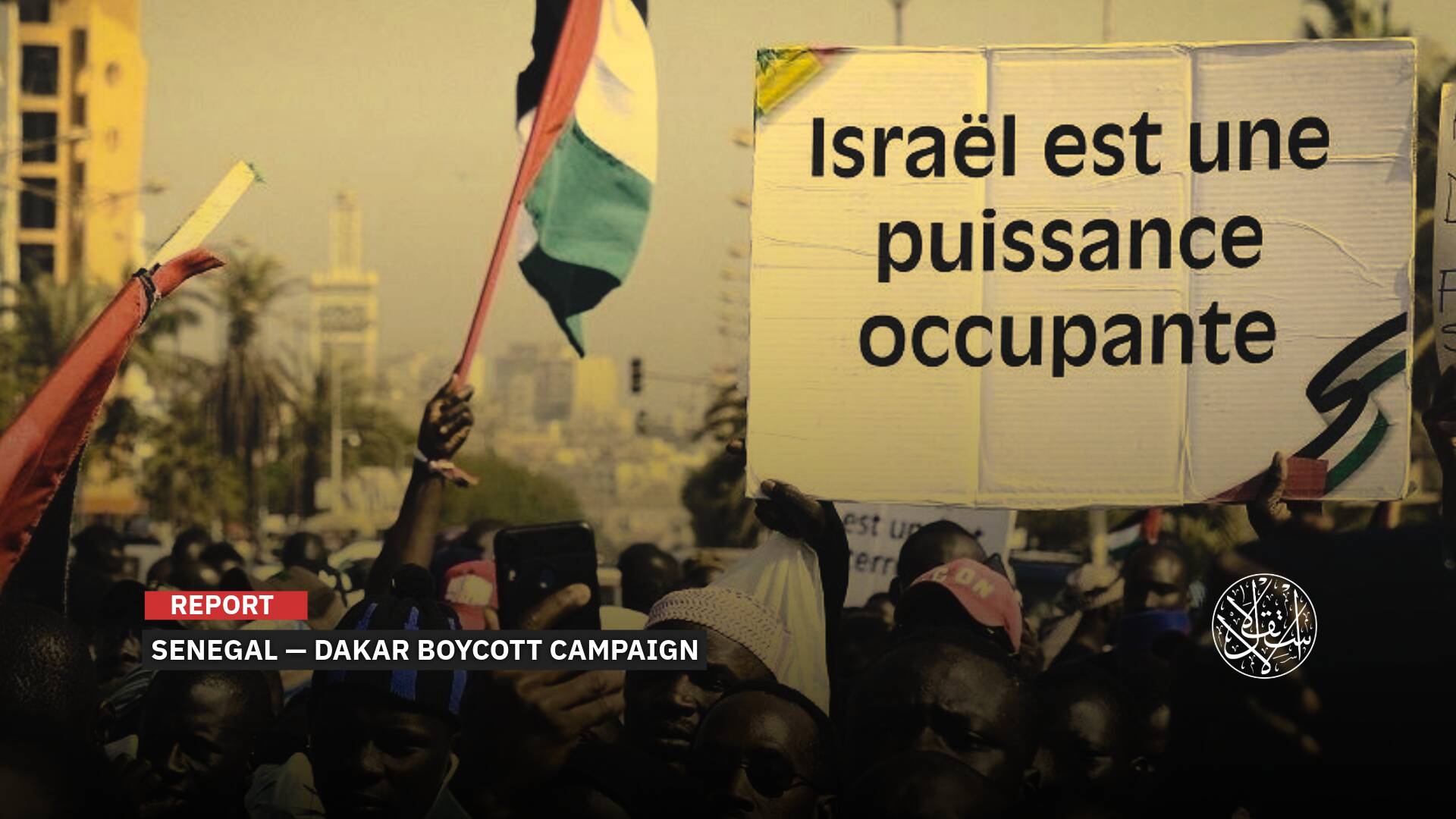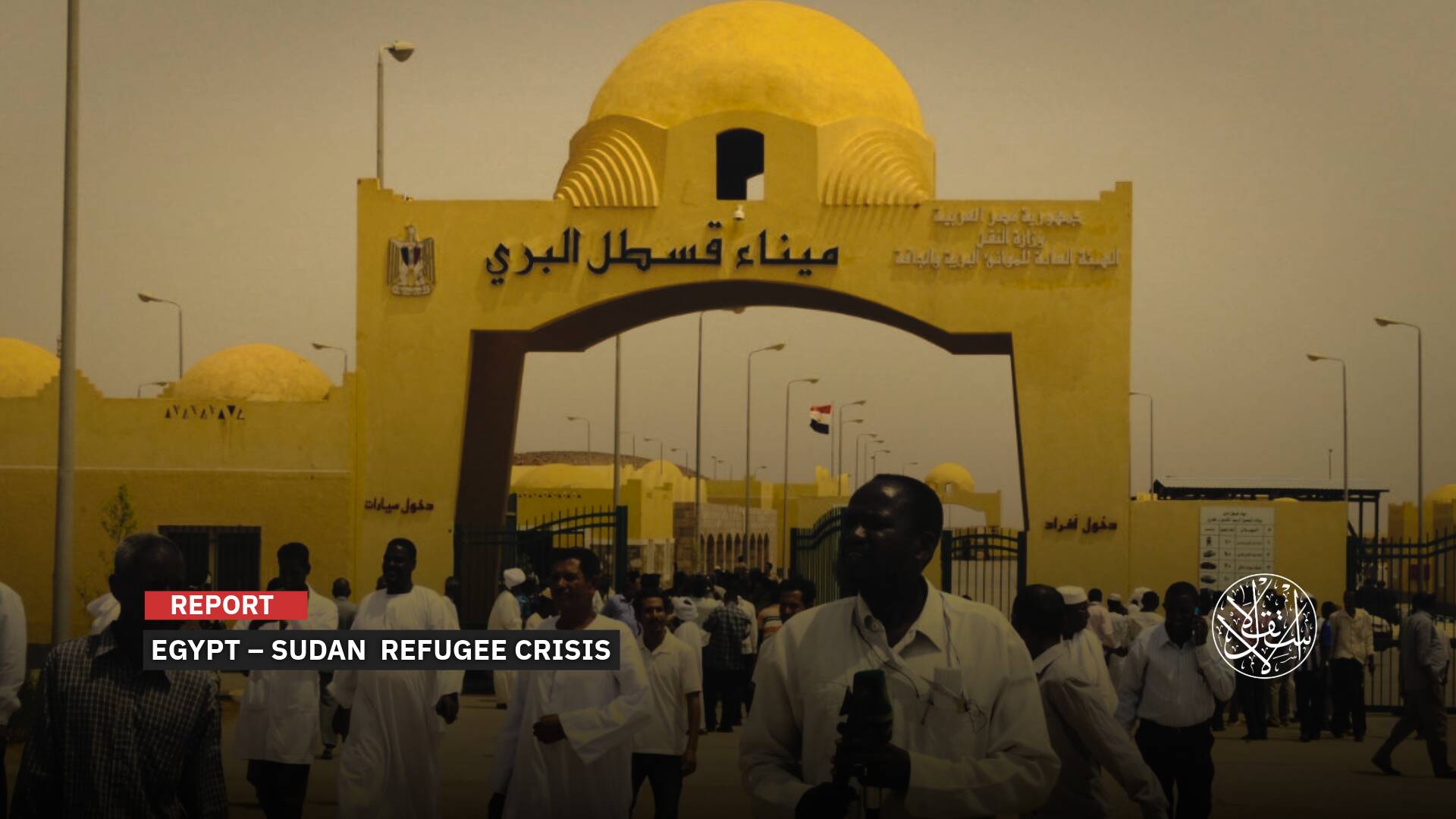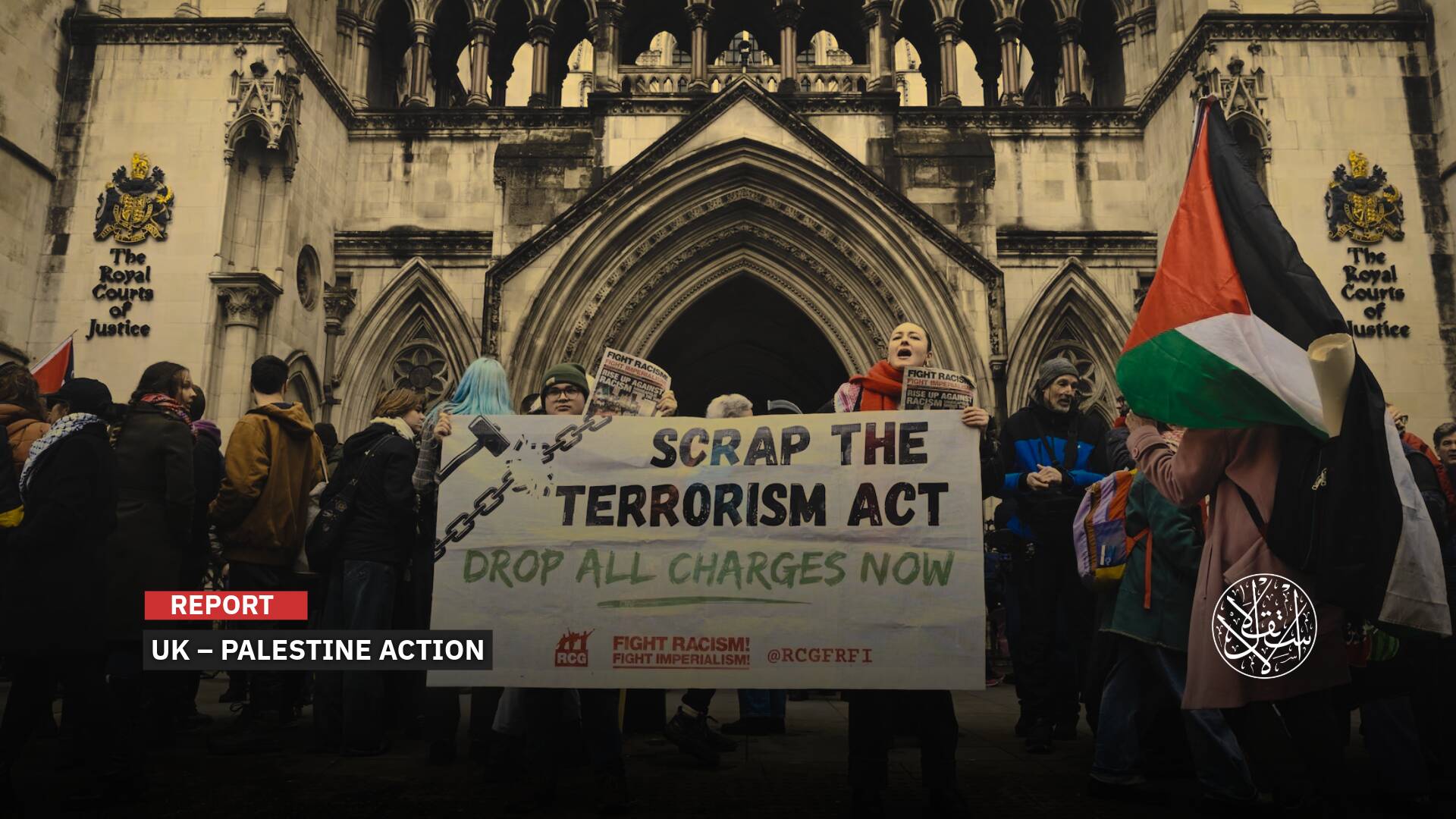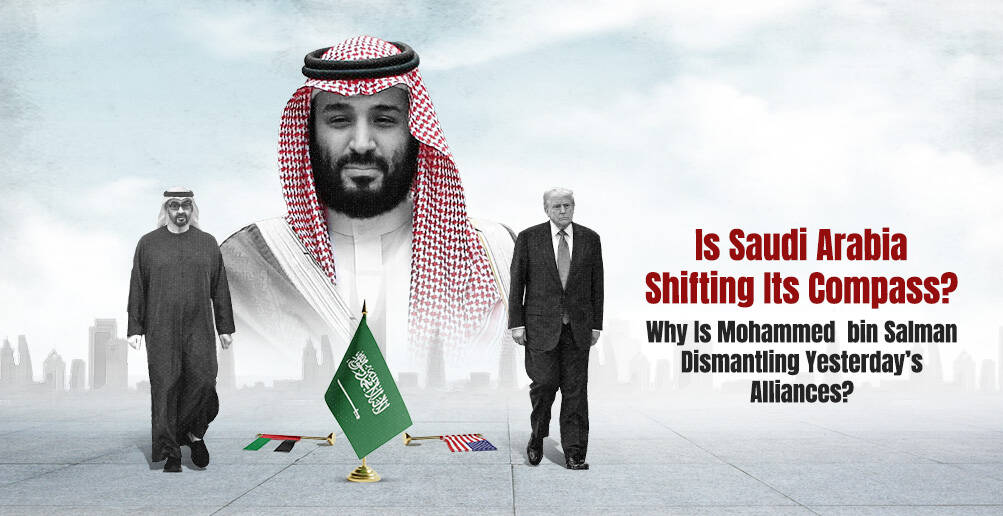Northern Cyprus and the Headscarf Debate: Legal Dispute or Identity at a Crossroads?
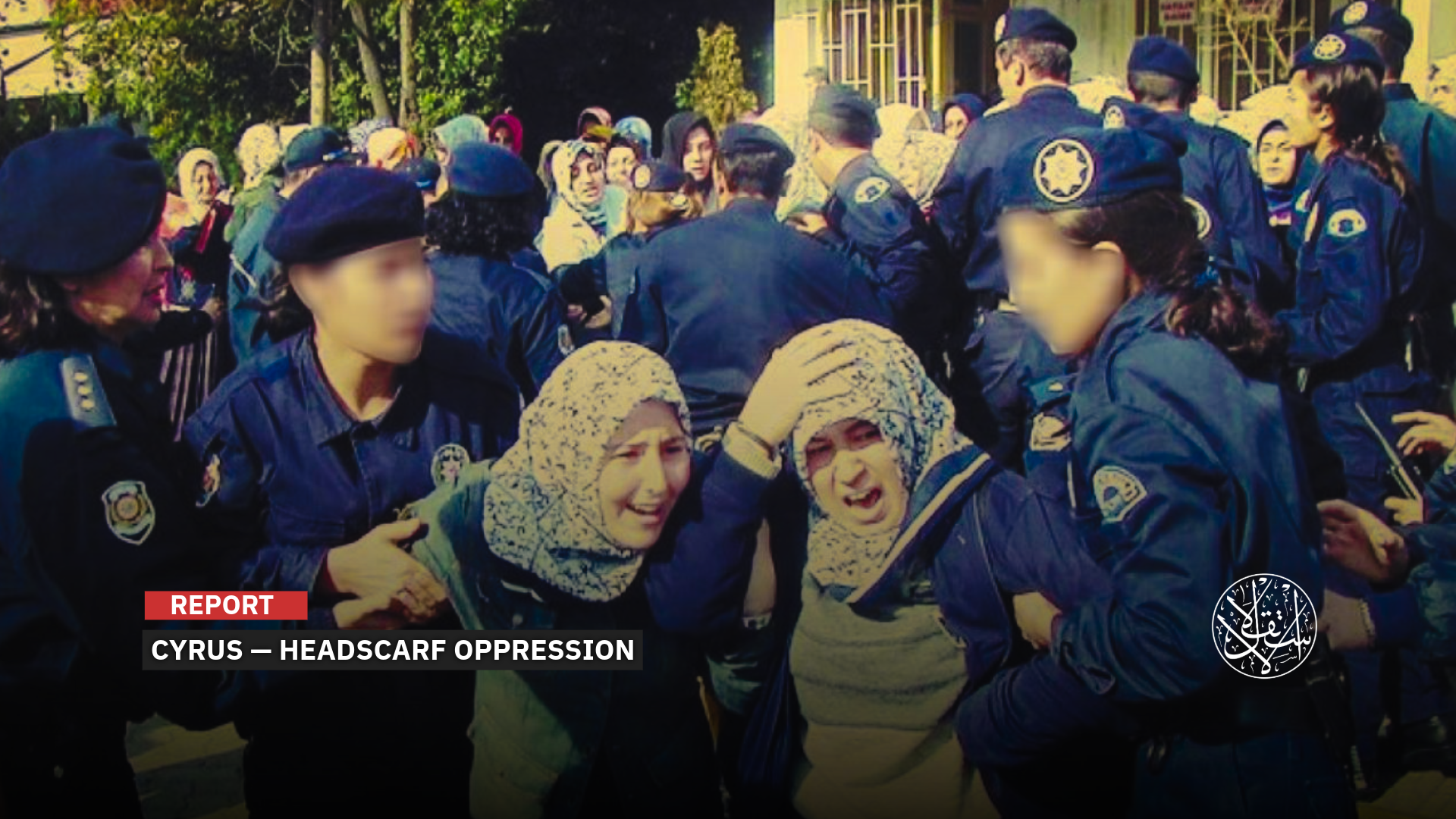
Discrimination against veiled students in Northern Cyprus schools recalls a dark chapter in the region’s history.
A decision by the Supreme Court in Northern Cyprus on September 25, 2025, to strike down a law permitting the wearing of headscarves in public schools has brought the debate back into the spotlight.
The move recalls a long era of headscarf bans once enforced in both Turkiye and Northern Cyprus, when slogans of “secularism” and the legacy of Ataturk were used to justify the exclusion of veiled women and girls from public life.
The irony is that Turkiye itself moved beyond this phase nearly two decades ago, opening universities and public institutions to headscarf-wearing women as part of wider political and social reforms.
Yet today, the Secondary Education Teachers’ Union in Northern Cyprus (KTOEOS) appears intent on reviving that past, seemingly ignoring the political and societal shifts that have taken place.
Why, in a small society like Northern Cyprus, are some determined to turn back the clock at a time when Turkiye is pushing to expand religious freedoms as part of its national identity?
Is this merely a dispute over school dress codes, or a deeper battle over identity, where ideological guardianship is imposed on future generations?
These questions have become increasingly urgent following the intervention of high-profile political figures, most notably Turkish President Recep Tayyip Erdogan, who warned against any infringement on the right of female students in the Turkish Republic of Northern Cyprus to wear the headscarf.
A Shocking Ruling
In the wake of the Supreme Court’s recent ruling in Northern Cyprus, which struck down the law allowing headscarves in public schools on the grounds of unconstitutionality, the legal framework has now reverted to its pre-April 9, 2025 status.
Prior to that date, girls were barred from wearing headscarves or any religious symbols in state schools, until the cabinet, led by Northern Cyprus Prime Minister Unal Ustel, issued a decision allowing students to attend school and sit for exams while wearing the hijab.
That move was widely welcomed by parents, but its reversal has sparked a wave of anger and frustration across large segments of the Muslim-majority society in Northern Cyprus.
Selma Eylem, head of the Secondary Education Teachers’ Union (KTOEOS), which brought the case to court, openly celebrated the decision. She thanked the judiciary for what she described as the court’s role in “protecting girls,” and praised the thousands of teachers and supporters who had taken to the streets earlier this year in protest of the cabinet’s decision to allow the headscarf in schools.
KTOEOS, which positioned itself at the forefront of the legal and public campaign, has drawn criticism for what many see as an attempt by hardline secularists to reimpose ideological control over society, reviving a model that even Turkiye itself has abandoned, after lifting headscarf bans in universities, schools, and government offices years ago.
The union’s lawyer, Onsel Bozkurt, went further still, accusing the ruling coalition and the prime minister’s office of violating the constitution.
He argued that the earlier government decision permitting headscarves represented an attempt to “overturn the constitutional order.”
The irony, critics note, is that while the union claims to defend the constitution, it treats religious freedom as an inherent threat.
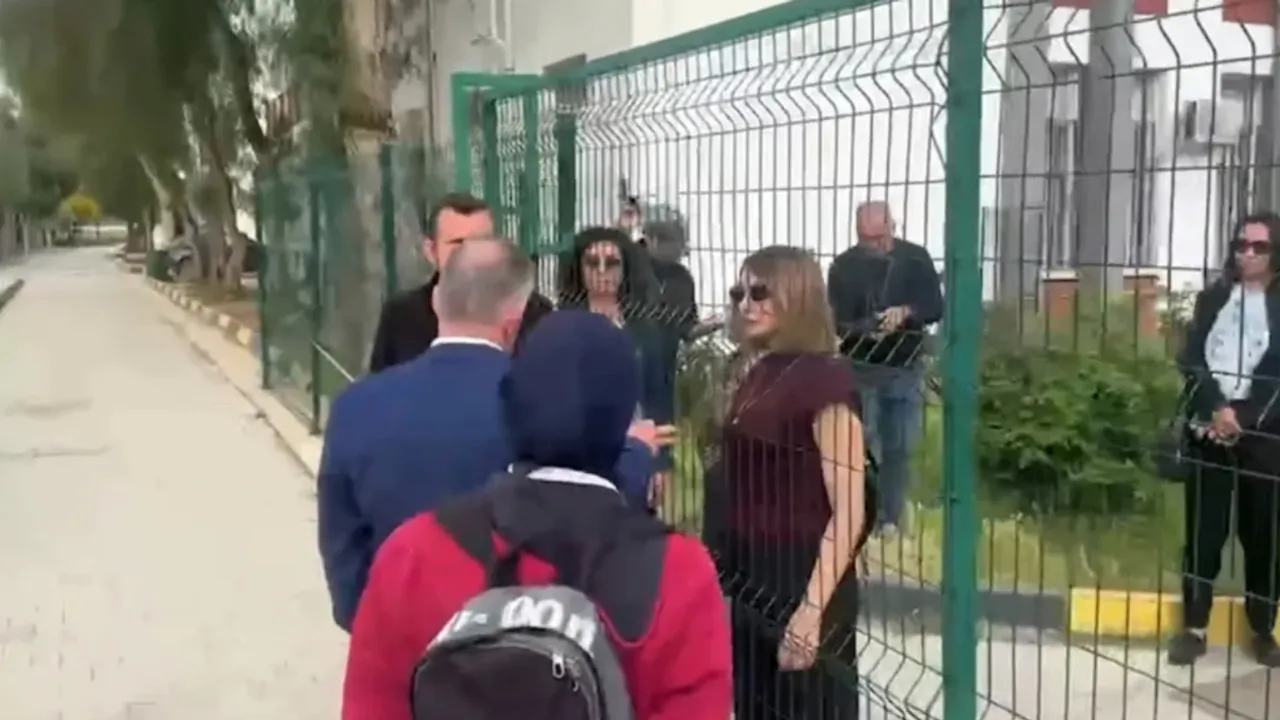
Diverse Protests
The government has yet to issue an official statement on the crisis, but one of the strongest objections to the court's ruling came from Minister of Public Works and Transport, Erhan Arikli, who delivered a scathing critique.
“It is illogical and unacceptable that headscarves are permitted in Christian-majority southern Cyprus, while they are banned in the Muslim north of the island,” Arikli said.
He described the situation as a glaring contradiction that raises serious questions about the principles of justice and equality. Speaking to local media, he added, “Can anyone seriously make sense of this nonsense? We’re trying to understand it.”
But the controversy has not remained confined to courtrooms and official statements. It has spilled into the streets and into schools themselves.
Since early 2025, thousands of Turkish Cypriots have taken to the streets in Nicosia and other cities on at least three major occasions, along with scattered smaller protests, following incidents where veiled students were barred from entering schools and sitting for exams.
Some schools have become flashpoints of confrontation. At Bekirpasa High School in Trikomo, in early April 2025, a girl wearing a black abaya and a boy wearing a small skullcap were prevented from entering their classrooms.
Teachers at the school staged a partial strike in response, disrupting exams and leading to a temporary school closure.
The Ministry of Education escalated the matter further, launching investigations into teachers who refused to teach veiled students, a move that starkly exposed the disconnect between officially declared human rights and how they are applied in practice.
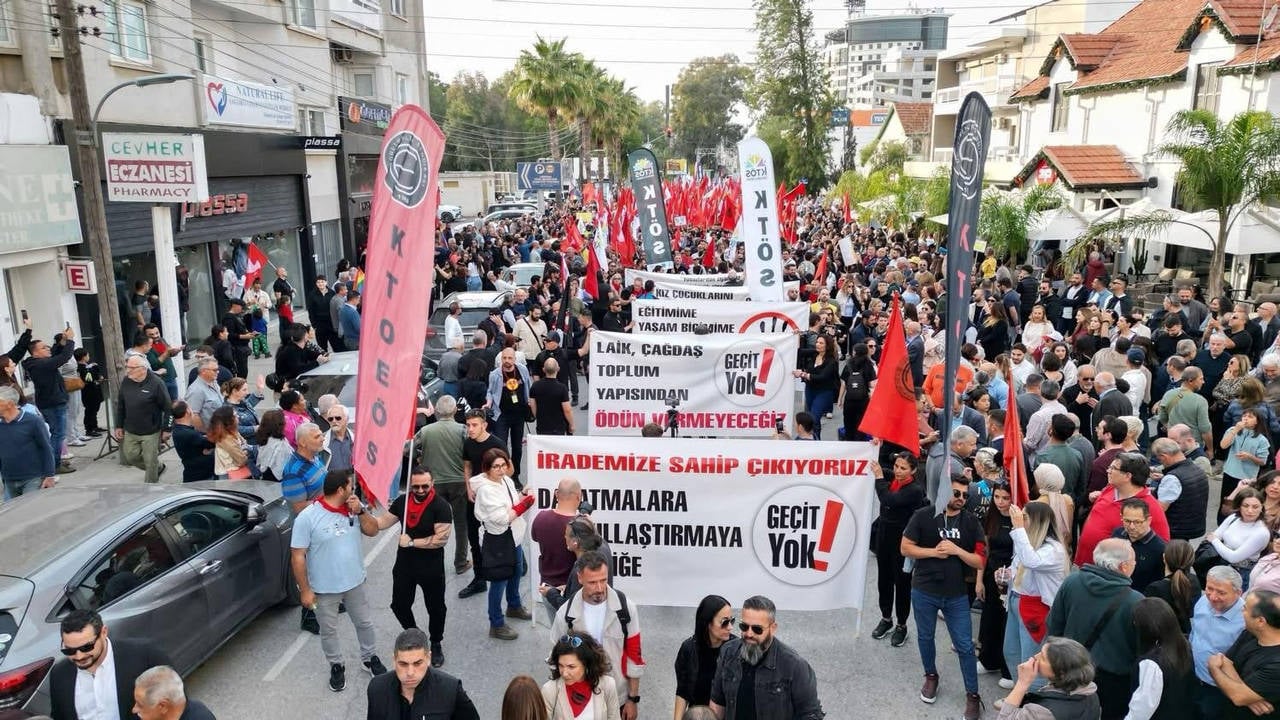
Headscarf Legislation
Returning to the details of the law overturned by the court in the ongoing headscarf and identity debate, on April 9, 2025, the cabinet of the Turkish Republic of Northern Cyprus approved amendments to the disciplinary regulations governing school uniforms in secondary schools.
The changes permitted female students to wear the headscarf inside classrooms, a move hailed as historic by advocates of religious freedom, but which also sparked fierce backlash from secularist currents on the island.
Responses were swift and sharp. Critics described the decision as a retreat from secular principles, with some, including Selma Eylem, head of the Secondary Education Teachers’ Union, going as far as accusing Turkiye, which had supported the move, of acting as an occupying power seeking to impose its religious agenda on Northern Cyprus.
On May 7, 2025, Turkish newspaper Star published an article by writer Engin Ozekinci, who condemned what he described as divisive rhetoric in Northern Cyprus that opposes the headscarf and portrays Turkiye as an alien force on the island.
Ozekinci argued that these voices do not reflect the broader sentiment among Turkish Cypriots, but rather represent marginal groups linked to external agendas aimed at undermining Turkiye’s presence.
According to the author, this campaign goes beyond distorting historical facts to challenging the legitimacy of Turkiye’s role in the region altogether.
Turkiye’s military intervention in Cyprus in 1974, under Operation “Peace,” was undertaken to protect Turkish Cypriots from threats of ethnic cleansing, grounded in the Zurich and London agreements as a guarantor power.
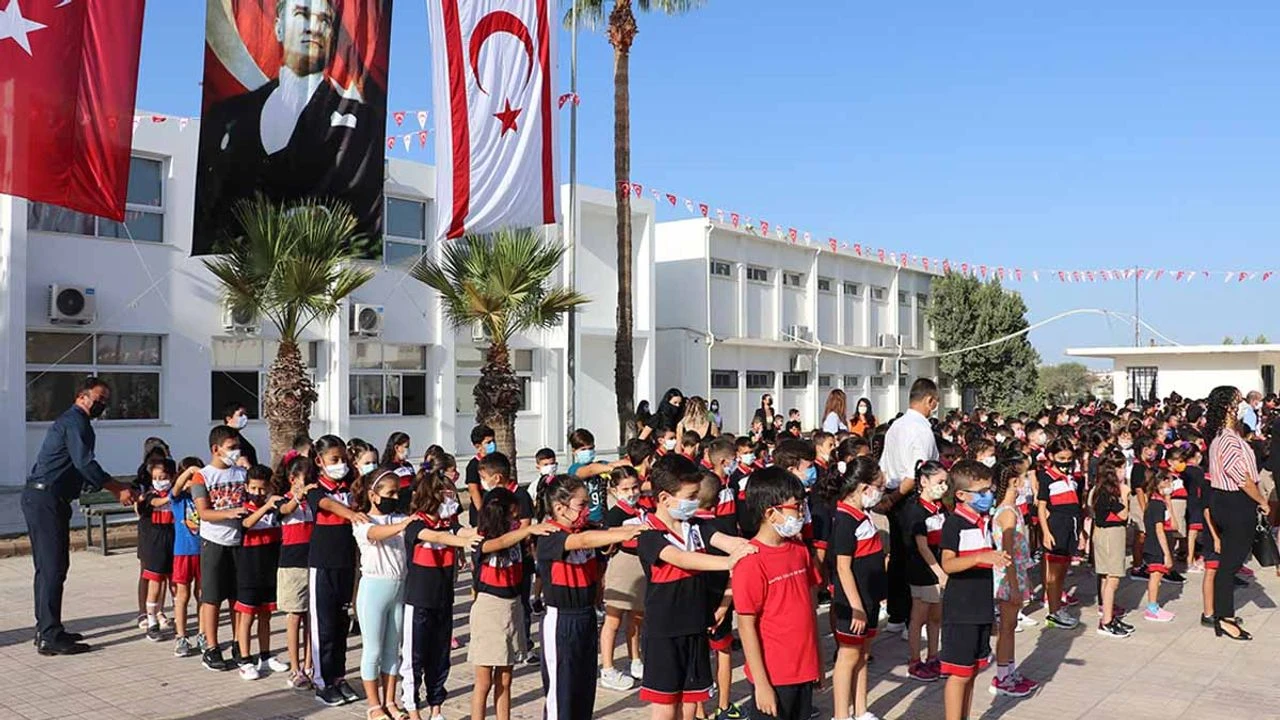
Beyond the Headscarf
Notably, this rhetoric has emerged at a time when relations between Ankara and Turkish Nicosia are experiencing renewed momentum, fueled by Turkish investment and regional strategies aimed at safeguarding Ankara’s interests in the Eastern Mediterranean.
President Recep Tayyip Erdogan took a firm stance against the anti-headscarf campaigns and criticism of the growing alignment between the administrations in Turkiye and Northern Cyprus.
During his visit to the island on May 3, 2025, to attend the TEKNOFEST festival for technology, defense, and aviation, Erdogan delivered a pointed message.
“Though our names may differ, when it comes to the Cyprus issue, we share one title, and that is Turkish Cyprus,” he declared.
“Those who try to poison our brotherhood and sow seeds of hatred will not succeed,” Erdogan said, affirming that Ankara would continue its unwavering support for Turkish Cypriots.
Erdogan’s remarks extended beyond defending Turkiye’s presence on the island to directly addressing the headscarf issue.
“If you try to mess with our girls’ headscarves in the TRNC, I am sorry, you will find us against you,” he warned.
The statement underscored Ankara’s view of the matter as a struggle over identity, one no less critical than battles over territory or sovereignty.
Yet, the discrimination against veiled students in Northern Cyprus has also stirred memories of a darker period in Turkiye’s own recent past.
Specifically, the February 28, 1997 period, when strict restrictions were imposed on veiled women, who were banned from entering universities. That era saw the rise of so-called “persuasion rooms,” where female students were subjected to psychological pressure to remove their headscarves.
Today, when a student is barred from entering a school in Nicosia or Trikomo, the scene feels like a troubling replay of that past, despite the fact that Turkiye has long since moved beyond those days and embraced greater religious freedoms.
According to a report published by Turkish newspaper Haberler on March 17, 2025, the headscarf debate in Northern Cyprus can no longer be seen as a purely domestic issue.
Instead, it has become linked to Turkiye’s broader national project, which Erdogan describes as “Greater and Stronger Turkiye.”
From Ankara’s perspective, Northern Cyprus is seen as an indispensable partner in maintaining regional balance, whether in terms of energy, maritime influence, or broader geopolitical shifts in the Eastern Mediterranean.
As a result, any campaign targeting the headscarf or seeking to marginalize religious symbols is viewed not in isolation, but as part of a wider attempt by foreign actors to weaken Turkish-Cypriot unity and undermine the strategic partnership between Ankara and Nicosia.
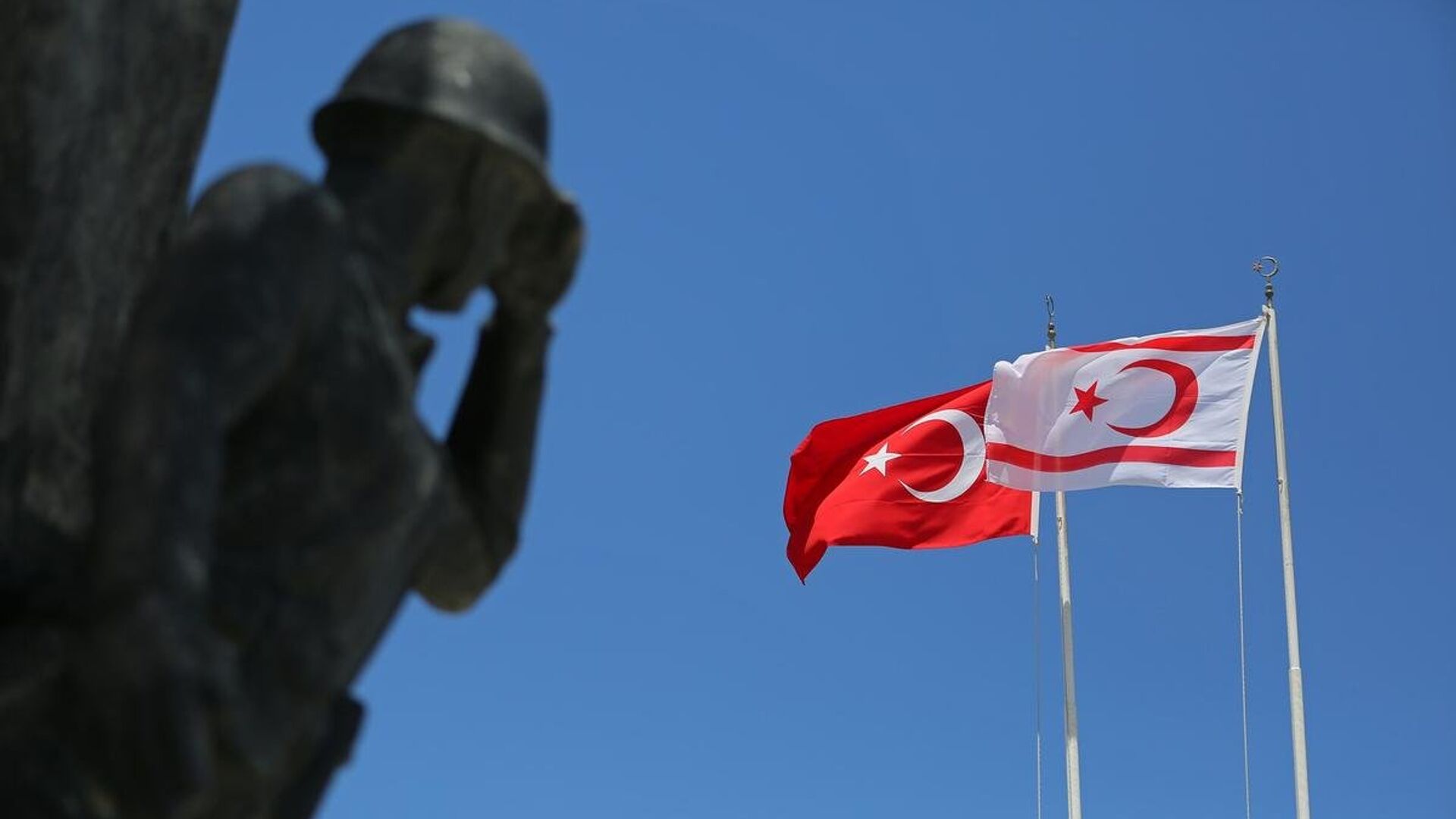
The Quran Centers Crisis
This is not the first clash over religious freedom between Ankara and institutions within Northern Cyprus that have sought to impose a particular vision on the island.
On April 16, 2021, a major controversy erupted in the Turkish Republic of Northern Cyprus following a Constitutional Court ruling that restricted the operation of Quran memorization centers, arguing that their activities were incompatible with the secular character of the state.
The ruling stipulated that all religious courses, including Quran memorization classes, must be administered exclusively by the Ministry of Education, not by independent religious bodies. The decision was widely seen as provocative and sparked considerable anger in Turkiye.
President Recep Tayyip Erdogan was the first to respond, expressing strong opposition to the ruling.
Speaking to reporters, he stated, “The Constitutional Court in Turkish Cyprus needs to learn what secularism actually means.”
He added, in a firm tone, “The Turkish Republic of Northern Cyprus is not France, and they must correct this mistake quickly, or our next steps will be different.”
Erdogan went further, directly criticizing certain unions and groups he described as “anti-religious,” making it clear that Ankara would not accept any restrictions that infringe on religious freedoms on the island.
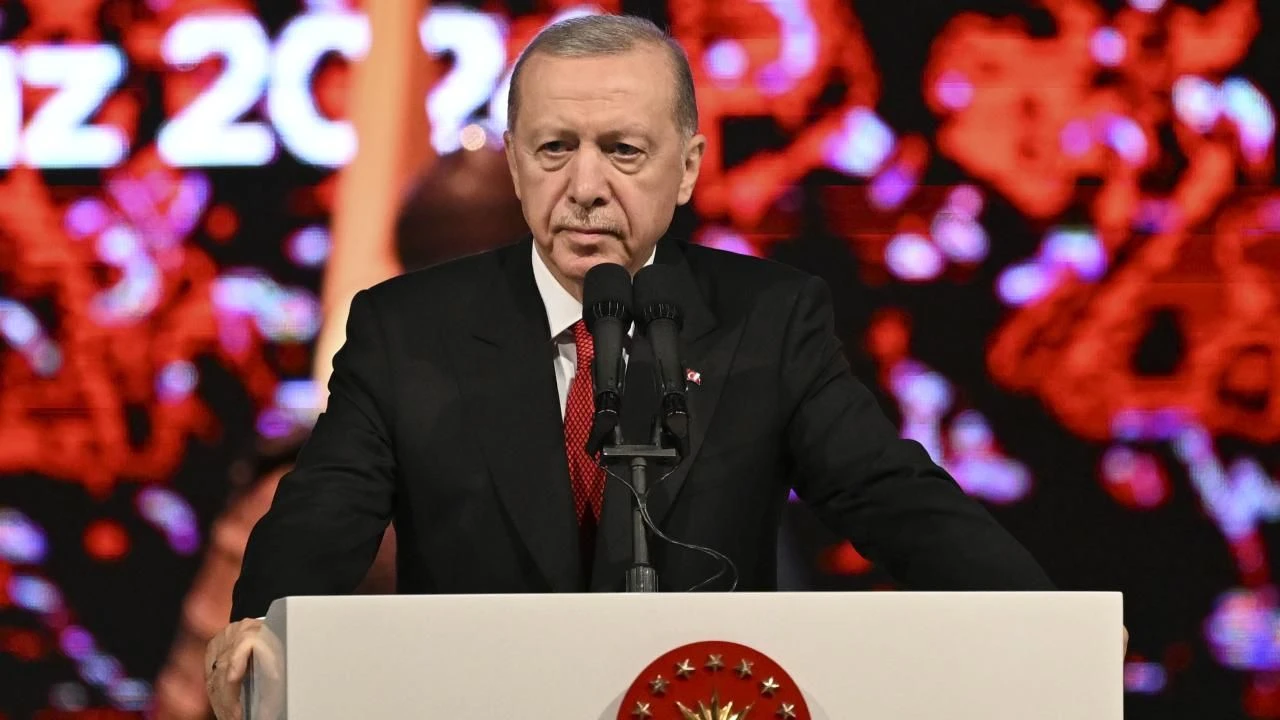
A Broader Conspiracy
Abdullah Latif Bay, a researcher at Turkiye’s SETA Foundation, said the headscarf controversy in Northern Cyprus reveals multiple layers of conflict. On one level, it is a cultural struggle over individual freedoms.
On another, it is a political battle over the identity of the Turkish Cypriot community. And at a broader level, Bay argued, it forms part of a wider regional game aimed at curbing Turkiye’s influence in the Eastern Mediterranean.
Speaking to Al Estiklal, Bay said, “What is certain is that Ankara, both at the state and popular level, will not allow a return to past practices. It will not hesitate to defend the right of veiled girls to access education, as part of a larger struggle for freedom, dignity, and sovereignty.”
“It is unfortunate that the mindset of those leading the teachers’ union and some judges in the Cypriot Constitutional Court is so backward.”
“Instead of promoting religious freedom or addressing the real issues facing education and students’ development, they are dragging the country into battles that ended long ago, reviving conflicts that have even been settled in parts of the West,” he added.
Bay also suggested that there are signs of an external conspiracy aimed at severing the island’s ties with Turkiye and weakening it.
“This is a long-standing goal pursued by Greece, naturally, along with Israel and several major Western powers, including France, Germany, and the Netherlands,” he said.
“These countries have long sought to create that separation, whether politically or by undermining the society’s identity and its connection to religion.”
Bay concluded by asserting that the strongest bond between the Turkish Republic of Northern Cyprus and Turkiye is their shared religious and Islamic identity.
This, he said, was the same reason behind former Turkish Prime Minister Necmettin Erbakan’s decision to launch the 1974 “Peace Operation,” when Turkish forces intervened to protect Muslims on the island from Christian militias backed by Greece, which at the time were accused of planning their ethnic cleansing.
Sources
- TRNC Constitutional Court issues ruling on 'headscarf ban' [Turkish]
- Breaking news... Historic headscarf move in TRNC: School dress code regulations to be changed [Turkish]
- Mother of the girl barred from school in TRNC over her headscarf: "My daughter's will is unshakable" [Turkish]
- Supreme Court in Northern Cyprus cancels the law allowing headscarves in public schools [Arabic]
- Erdogan warns Turkish Cyprus over decision targeting Quran memorization courses, urges swift reversal [Arabic]
- Turkish Republic of Northern Cyprus permits headscarves in secondary schools [Arabic]
- In Northern Cyprus, the Constitutional Court annulled the regulation that allowed headscarves in secondary schools [Arabic]
- Turkiye’s national cause: Cyprus [Turkish]



